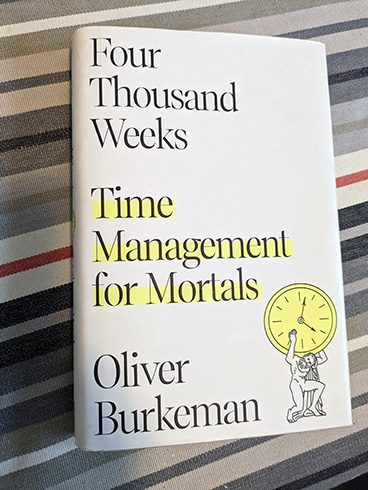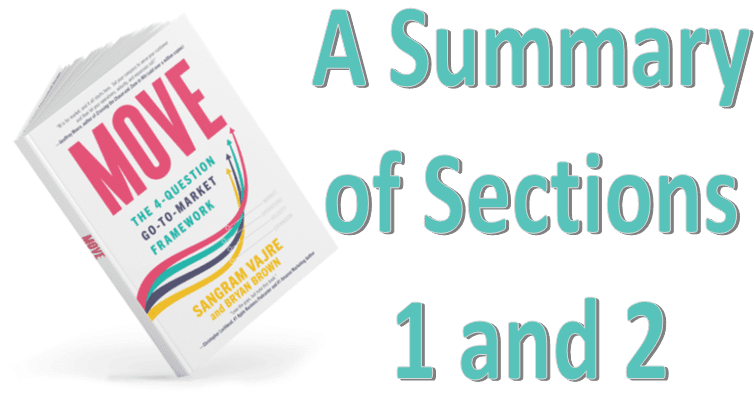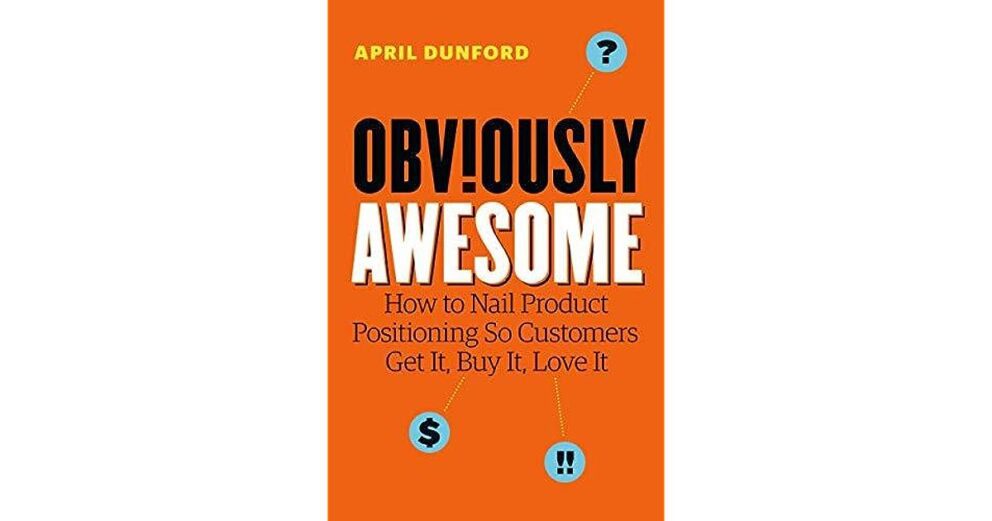How Will You Spend Your Four Thousand Weeks?

Summary
Four Thousand Weeks: Time Management for Mortals is a refreshing read—different from any other productivity book I've read. Instead of touting ways to maximize our productivity through multi-tasking, Oliver Burkeman suggests focusing on a few meaningful things in life. The book encourages readers to embrace a more mindful and intentional approach, and to let go of the false idea that we can somehow create more time to get things done.
By Lisa Heay, Director of Business Operations at Heinz Marketing
When “Four Thousand Weeks – Time Management for Mortals” by Oliver Burkeman came up as my Book Club assignment this month, I had mixed feelings. I’d heard of it, and have heard rave reviews, but honestly I wasn’t excited to read another productivity book.
It’s not that productivity books are bad. I do love them, and love the idea of reading something and instantly feeling like I have control over my life.
But that’s never the outcome, is it?
I might pick up some pointers, but then slip back into my normal routine—ultimately ending up feeling bad about myself for having this immense knowledge but still not being able to get a handle on my life.
First off, Oliver Burkeman knows what he’s talking about. He is an author and journalist who writes for The Guardian newspaper, specializing in psychology and human behavior. He has written “The Antidote: Happiness for People Who Can’t Stand Positive Thinking”, “Help! How to Become Slightly Happier and Get a Bit More Done” and “Four Thousand Weeks”—which explores the challenges of managing time in a world filled with distractions and demands.
It’s safe to say he knows a thing or two about the human psyche and how we tend to operate.
Lifespan measured in weeks
To depress you right off the bat—the title of his book refers to the approximate number of weeks in the average human lifespan—which by my calculation is about 76.9 years old.
Hopefully we all have more time than that, but some don’t, and when you think about your life in a sum of weeks – and think about how fast those weeks pass by – the reality sets in. We don’t really have a lot of time. Especially those of us who have already checked off over half of those hypothetical weeks. Ouch.
Now that the book has humbled us, it really drives the point home: you’re never going to get everything done in the amount of time you have.
You won’t run all the marathons, write your novel series, travel to all the exotic places on your list, support your family, succeed in three (or more) different interesting careers, plan those parties, learn to knit, woodwork, underwater basket weave—the list goes on and on.
And what is truly done anyway? Do you ever reach the end of your life thinking “I checked everything off my list, there isn’t a single thing left for me to do.” No. There is always more.
So what can you do?
(To be candid, my next thought was “Do I really want to spend one of my four thousand weeks reading this book?” I did keep going).
Embracing your limited time
Burkeman argues that conventional productivity advice often leads to feelings of overwhelm and inadequacy (glad I’m not the only one!). All the productivity gurus out there tout ways in which you can optimize every waking minute of your day – but if you’re like me, and others as Burkeman suggests – you end up just feeling like a failure.
This one was definitely different from other productivity genre books I’ve read in the past. This one wasn’t about how to get all the things done, but accepting that you never will.
Instead, he suggests embracing the limitations of time and focusing on what truly matters. He encourages readers to cultivate a deeper awareness of their values and priorities, and to make conscious choices about how they spend their time – even if that means doing nothing.
Setting priorities
One section that really struck me was on resisting the allure of middling priorities. In chapter 4 – Becoming a Better Procrastinator, under The Art of Creative Neglect, Burkemen cites advice from Warren Buffet: Make a priority list of your top 25 to-dos, and then to cross all but a few off the list.
You’d think the advice is to complete the top few and then move on to the rest, but he suggests that those remaining twenty or so items should be avoided at all costs, because “they’re the ambitions insufficiently important to him to form the core of his life, yet seductive enough to distract him from the ones that matter most.”
The majority of that list are those items that are dangerous – they are the ones at risk of distracting you the most. They can pull you away from your main goals and tasks because they seem easy or fun, but they don’t actually contribute to your main objectives.
Decision making is really the key here. What are your main objectives in life?
Decisions are uncomfortable. People try to actively avoid making them for fear they’ll make the wrong one. But at some point you need to make one, stick to the priority and get something done.
Work life
What really got me thinking was how I could apply this way of thinking to my work life. Not the sit and do nothing part, but the prioritization of what is truly important.
If you’re like me (prior to reading this book), you have grand plans for every work day. I had calendar blocks for every project I needed to do, and despite reality, I tended to think that these projects fit into 60 minute blocks of time and I can do 5 major things plus meetings in one day.
It’s never happened. Not once. And then I’m left feeling like a failure, day in and day out. Yet every week I made these same grand plans.
After reading this book, I’ve focused more on the things that would make the biggest impact on my company and my role.
I’ve also tried the open list/closed list concept. I have my list of things prioritized, and the important ones on the open list. Nothing gets worked on from the closed list until the open list is done.
Everything is still important, but it helps me keep focus on what is necessary for success now.
Am I perfect at this system? No. But it helps to try, and I end each workday getting much more content and in control of my time.
Wrapping it up
The book emphasizes the importance of embracing imperfection, accepting that we can’t do everything, and finding contentment in the present moment. Burkeman also emphasizes the value of rest, leisure, and unstructured time for creativity and well-being.
Honestly, it’s the first “productivity” book I’ve read that didn’t make me feel bad for wanting to sit and do nothing—a definite win.
So how will you spend your four thousand weeks?




